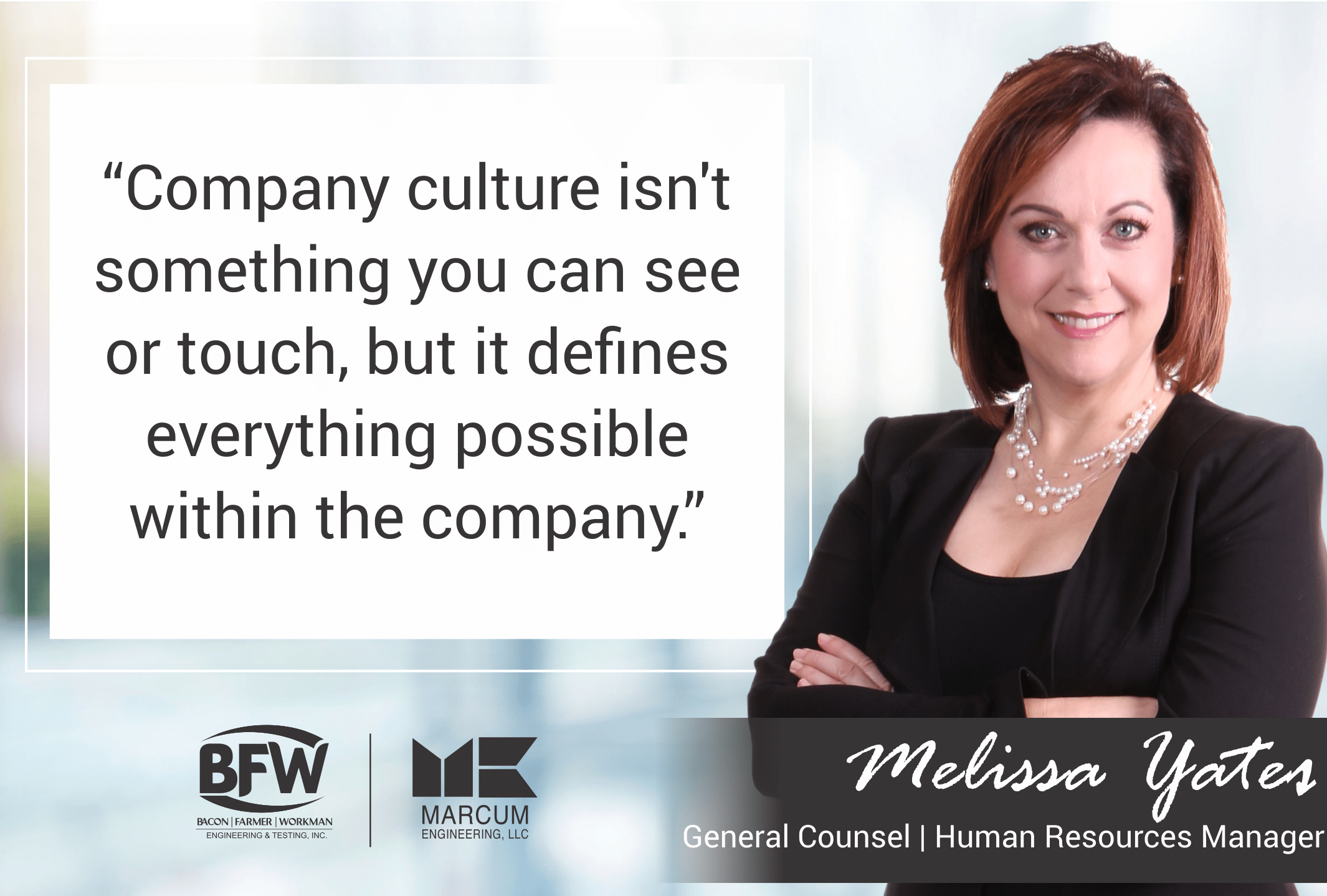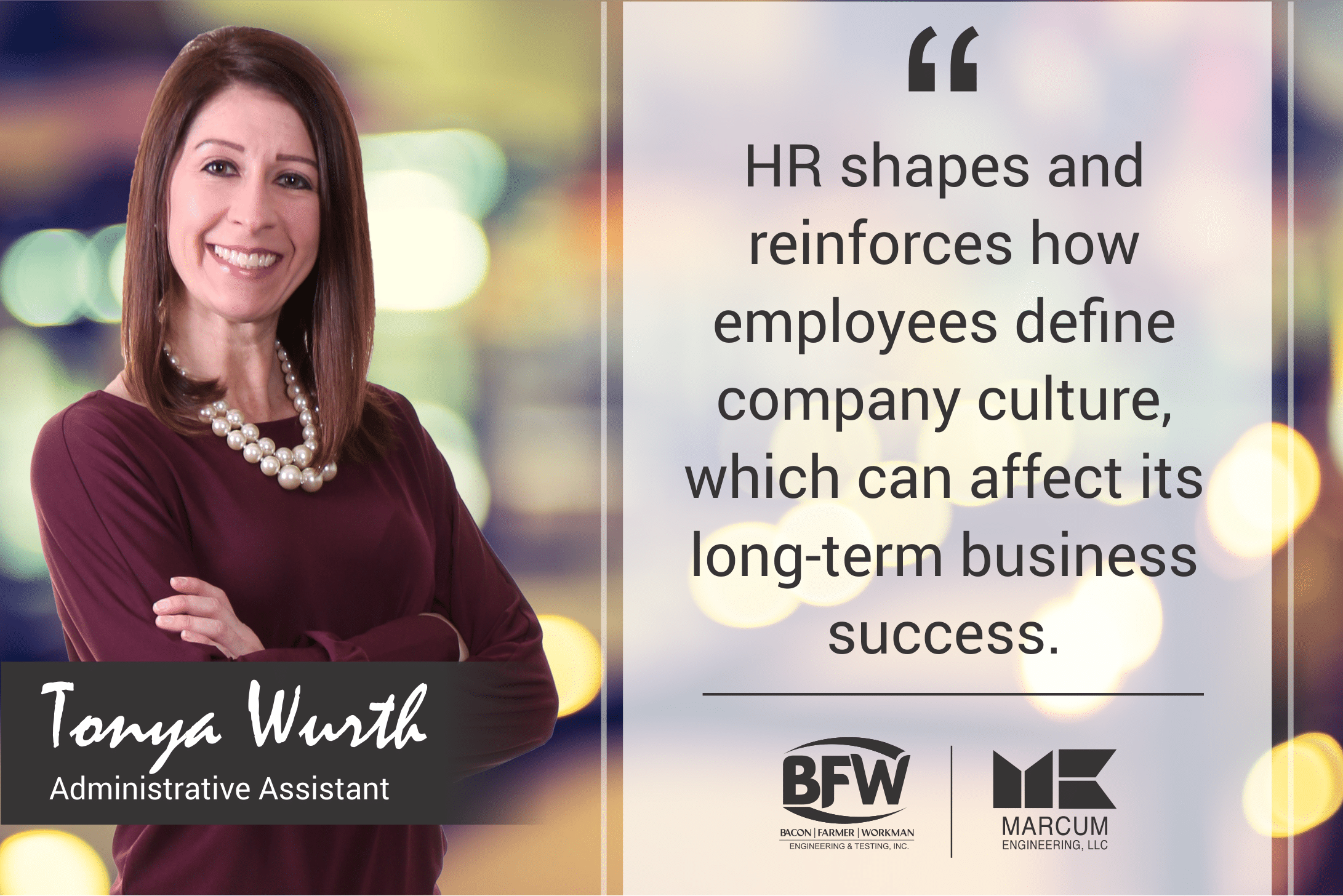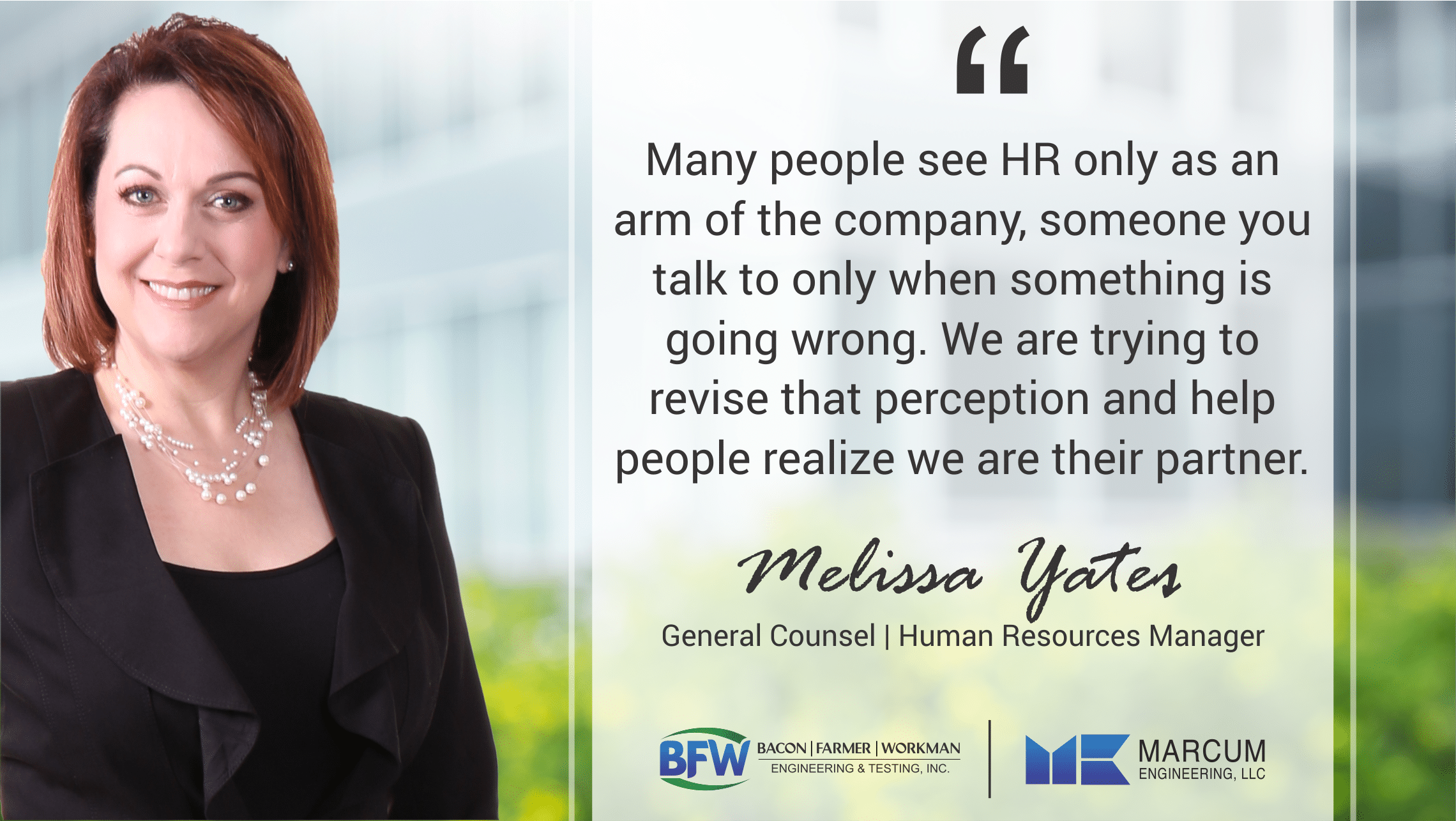Tackling the Intangible: How HR Forms the Spirit of Our Firm
Pop culture has turned the idea of HR into a bit of a joke. In the TV show “The Office”, you had Toby from HR, who was written as an embodiment of the common perception of that department. A buzz kill, not in on the joke, and something akin to the workplace equivalent of the principal’s office.
However, in real life, a functional HR department is less like the people that slap your wrist and more like the glue and the pulse of an organization. Their perception of the company often is the company’s direction. Yet, a lot of what they do as well as the effect they have on a workplace is intangible. That’s why we gave both Melissa Yates, General Counsel/Human Resources Manager, and Tonya Wurth, Administrative Assistant the near-impossible task of trying to define it. What they came back with gave us a clarity into the art of HR.
Culture as a Human Resource
First, we asked Melissa how she would describe the relationship between company culture and human resources. “Company culture isn’t something you can see or touch, but it defines everything possible within the company. So, then the question is what do we as a company value? We value innovation and forward-thinking which requires our employees to be curious about the world around them and the needs of our clients. We value honesty and candor.

One of the many things I love about our company is that management is open to new ideas. Employees are not only encouraged but expected to share their opinions and experience. This requires honesty and courage, but it helps make the culture belong to everyone and recognizes that everyone in the company has something unique to contribute. Honesty also requires that people admit when they make mistakes and own the consequences of that mistake.
We want people who value communication, individuals who listen to understand rather than react are crucial to achieving our clients’ goals. We want to hire people who will seek what is best for the client and the company over their ego or gain. We want people who will search for the best ideas and solutions because we curate a culture of excellence.”
Facilitating the Employee Life Cycle, from Hiring to Retiring
HR is often the first impression of a company. It’s easy to identify with a job applicant. However, what is not often considered is the other side; the company competing with other firms to find and hire great talent. In the engineering world, it’s not uncommon for a person to receive multiple job offers. So, how does a firm put its best foot forward? Tonya believes that it’s on the shoulders of the HR department.
“An employee’s first point of contact when brought onboard is generally the HR department. HR shapes and reinforces how employees define company culture, which can affect its long-term business success. HR plays a fundamental role in emphasizing company culture both internally and externally by focusing on the company’s mission and values, brand identity, employee attraction and retention, brand reputation, and productivity.”

Culture is everything. Yet, the ability to represent that culture to someone on the outside is just as important. Every firm has its salespeople and public relations folk. Who sells the business to potential hires? That’s another underappreciated role of HR. Melissa believes that HR has a big hand in not just finding engineering talent in the area, but in acquiring it. Plus, our widespread collaboration has had some unexpected bonuses.
“Hiring is tough, regardless of the industry. However, I think we are lucky to be a firm with a strong reputation within our industry and several offices. I think this allows us a large enough geographic footprint to find quality people from multiple areas and disciplines. The ability to collaborate remotely means that we can have people in separate offices working on the same project. This proved to be exceptionally beneficial to us when COVID-19 temporarily closed offices earlier this year and when operating at a reduced capacity to keep our employees healthy.
The fact that our management team had prepared for remote work and employees working in different locations made it a much easier transition when COVID-19 hit. This type of forward-thinking is critical to our success…we know that change will come, it is a matter of anticipating what could happen and preparing for it beforehand.”
Revising the Perception of What HR Can Do for Its People
Melissa sees HR as more than just a department for recruiting and hiring. It does much more for the company. She strives to be a guide for employees during their employment with the company. “I see our role as facilitating the entire employee life cycle, from hiring to retirement, to support the culture and goals of the company. If everything comes together, we help locate the right person for the right job at the right time.
However, our work in HR does not stop with recruiting and hiring. We are here to support the employees throughout their career at BFW/Marcum. We help develop processes and procedures to assist the people we work with maximize their opportunities and the benefits they receive as an employee of the firm. We want procedures and rules that keep employees safe and are fairly applied but we also want to support them during times such as illness or having a child or those considering retirement. We get to help them through many important moments in their lives.”
Melissa wants you to think of her team as your advocates and not just as someone you go to when there’s trouble. “Many people see HR only as an arm of the company, someone you talk to only when something is going wrong. We are trying to revise that perception and help people realize we are their partner, not an enemy. We are trying to help them live out our company values to the best of their ability. We know that educating our employees about the company’s expectations makes for more satisfying employment relationships. This helps people understand their role and the company’s expectations of them which empowers them to make strong decisions in their work.

One of the challenges I see is articulating this culture for our potential employees. Put simply, we are trying to cultivate a culture of innovation, judgment, and excellence. To make our company a place where people want to give their all because they care about and take pride in their work.”
Innovation is Key. So is Old Fashioned Hospitality.
Both Tonya and Melissa understand that HR needs to be an innovative branch of the company while still treating its people with an old-fashioned sense of hospitality. No one wants to feel unseen or under-represented. Yet, there are innovative ways of approaching these issues.
To Tonya, that means taking the time to know each of our employees “The advantage that BFW/Marcum has compared to larger companies is that Melissa and I get to know our employees personally. We view our employees as our clients. We want to get to know them, provide them with professional HR services, and to help them grow and succeed within the company.”
Melissa loves how our firm’s spirit of innovation doesn’t just streamline our productivity but empowers our workforce. “For one thing, we are in the process of converting to digital HR records. There are many reasons for this but one of them is that it allows us to keep more accurate, thorough records which is a necessity in today’s world. However, the program we have moved to is also more secure than paper files which protect our employees’ information. This allows our employees easily manage their information and benefits and empowers them to make the most out of the benefits the firm offers.”
We think Melissa touched on something important, something that is a core value of our firm. If you do the right thing—even when it is the more difficult thing—then you’ll find success at multiple levels, even unexpected ones. Empowerment usually doesn’t come from words alone (although, it helps). It comes from making decisions that increase the quality of life for everyone in the office. Whether that’s supporting their career, recognizing their accomplishments, or simply investing in tools that improve the quality of their personal or work life, it pays out in employee satisfaction, which is a priceless resource for the firm’s long-term success. After all, you reap what you sow.

Recent Comments